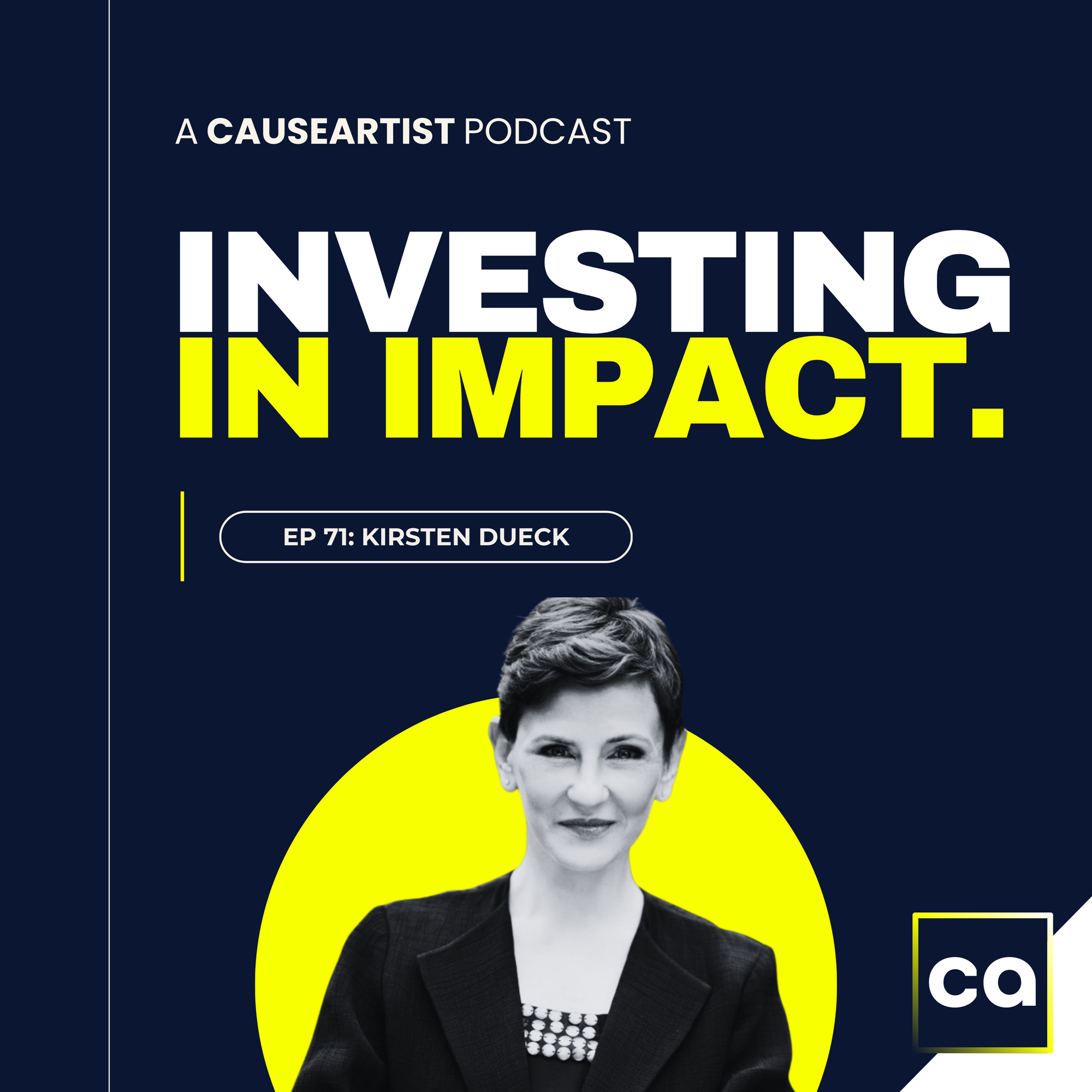In Episode 71 of the Investing in Impact podcast, I speak with Kirsten Dueck, CEO of NESsT, on breaking the cycle of poverty by investing front-line entrepreneurs.
- Subscribe on Apple Podcasts
- Subscribe on Spotify
About Kirsten
As the CEO of NESsT, Kirsten Dueck fosters trust-based relationships to accelerate impact for corporate, philanthropic, nonprofit, and community stakeholders.
In her role, she drives strategy and operations for a leading global impact investor and venture philanthropist.
As CEO of NESsT, she drives strategy and operations for a leading global impact investor and venture philanthropist that has invested more than $30M and trained and supported over 30,000 entrepreneurs across 50 countries, accelerated and financed 243 enterprises sustaining more than 100,000 formal jobs and improving the lives of 1.6million people from the most marginalized communities around the world.
In this episode, Kirsten discusses the organization's mission and vision in the field of venture philanthropy and impact investing.
She shares her career journey and how she found her way into this field. Nest is an impact investor and accelerator that works with small and mid-sized social enterprises in emerging markets.
They focus on sectors such as regenerative agriculture and gender equity. Kirsten highlights the importance of patient capital and the need for long-term solutions to complex problems.
She also mentions some portfolio companies, including PESCO, a responsible fishing company in Peru, and Box Elite, a paper company in Romania that employs refugees.

Sound Bites
"The idea that we can use our money for more than one thing at a time to achieve more than one end at a time I think is really central to the idea."
"If you train up a stratum of enlightened bought-in intermediaries, they can be ambassadors for the mission."
About NESsT
Since its inception in 1997, NESsT has been investing in front-line entrepreneurs, catalyzing impact-driven enterprises, and shaping sustainable and equitable futures, especially in emerging market countries.
A significant portion of the global population still grapples with extreme or moderate poverty, while nearly half face low incomes and challenging working conditions.
NESsT recognizes the inherent dignity in providing access to good jobs and reliable income, not just as a means of sustenance but as pathways to empowerment and community upliftment.
Invest, Accelerate, Transform: NESsT’s Approach
NESsT's strategy revolves around three core pillars:
Invest, Accelerate, and Transform.
By leveraging donations and patient capital, NESsT channels resources into social enterprises that prioritize creating dignified jobs for those most in need.
These investments are not merely financial; NESsT commits to these enterprises for several years, offering tailored financing and hands-on business development support to navigate the challenges of scaling.
Through this dedicated support, NESsT empowers social entrepreneurs to not only build successful businesses but also to transform communities.
By providing essential skills, technology, and ongoing support, these enterprises become catalysts for sustainable change, fostering economic resilience and fostering dignity.
The Power of Social Enterprises
At the heart of NESsT's philosophy lies the recognition of the unique role that social enterprises play in driving positive change.
Unlike traditional businesses, social enterprises are deeply embedded within their communities, earning trust and understanding local needs intimately.
They align their business interests with the well-being of their communities, ensuring that economic growth is inclusive and sustainable.








